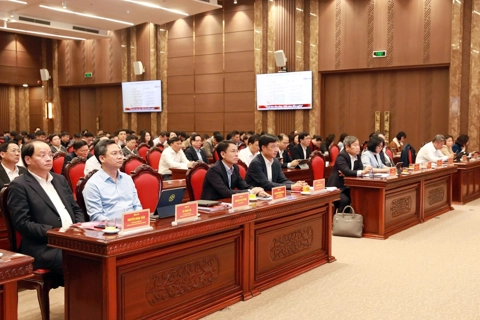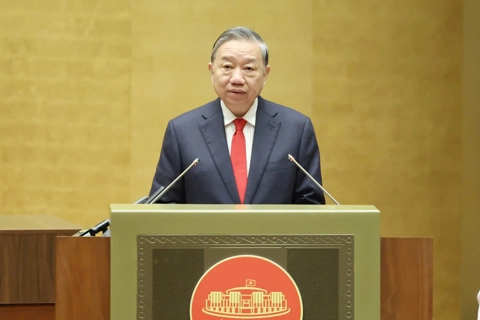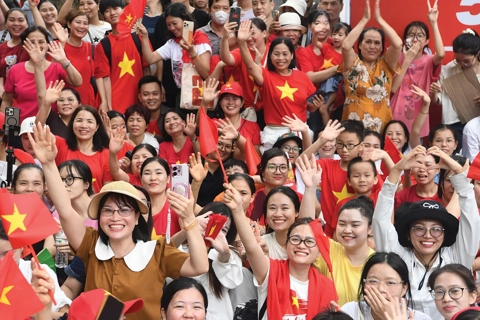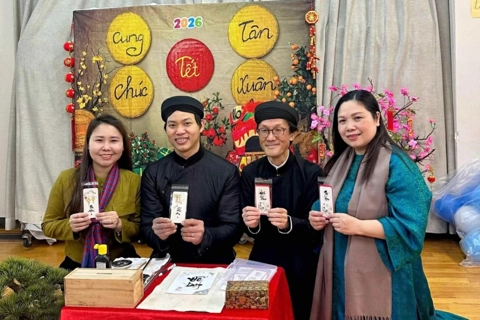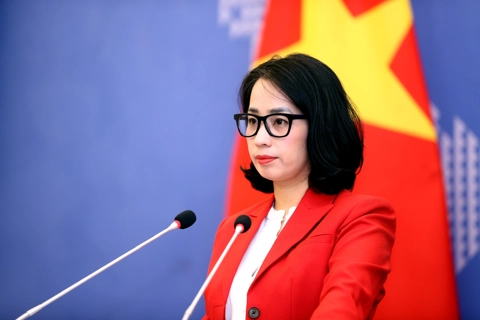US reaffirms to address war legacies in Vietnam
The US will provide Vietnam DNA technology to identify the remains of soldiers who died during the American War in Vietnam.
The US will continue to increase its assistance to Vietnam to address war-legacy issues, particularly dioxin (Agent Orange) cleanup, unexploded ordnance clearance, and other areas of cooperation, said US Agency for International Development (USAID) Administrator Samantha Power during her week-long visit to the country.
Samantha Power shared the view during her visit to Vietnam last week, noting that USAID will continue to address war legacy issues such as dioxin cleanup at Bien Hoa Airport, building DNA analysis capacity for Vietnamese scientists to search for and identify the remains of Vietnamese missing in action, enhancing health and social services to boost the quality of life for people with disabilities, and helping Vietnam mitigate the effects of climate change.
Samantha Power attended a ceremony last weekend to hand over 30,000 square meters of cleared land at the Bien Hoa Air Base to the Vietnamese Ministry of National Defense following the dioxin remediation. The land, located southwest of the airport in the southern province of Dong Nai, will eventually be turned into a park.
Samantha Power, US Ambassador to Vietnam Marc Knapper, Senior Lt.Gen. Hoang Xuan Chien, Vietnamese Deputy Minister of National Defense, announced a new contract worth $73 million to treat and clean up the soil at Bien Hoa Air Base. Photo: USAID |
The US also provided an additional US$73 million for soil treatment and cleanup at the Bien Hoa Air Base. Samantha Power said US experts are working with Vietnam's Ministry of Defense to clean up more than 500,000 cubic meters of dioxin-contaminated soil at the airport.
Between 1961 and 1971, the US military sprayed some 80 million gallons of Agent Orange, a compound of dioxins and dioxin-like mixtures, over 78,000 square kilometers (30,000 square miles) of southern Vietnam.
Samantha Power said that through the efforts of diplomats, both sides have helped identify the remains of US and Vietnamese soldiers. At the same time, the US has also helped Vietnam handle and dispose of unexploded ordnance.
The US will provide DNA technology to help Vietnam identify the remains of soldiers who died during the war, US Ambassador to Vietnam Marc Knapper said at the press conference. "We will bring the best and most advanced DNA technology to Vietnam in the hope of helping the Vietnamese people find their loved ones who died in the war," he stressed.
Ambassador Knapper and USAID Director General Samantha Power at the press meeting. Photo: USAID |
Leaders of the Mekong Delta city of Can Tho held a working meeting on March 9 with the delegation led by USAID Administrator Samantha Power, during which the two sides discussed cooperation in responding to climate change and helping people affected by the natural phenomenon.
At the meeting, Tran Viet Truong, Chairman of the Can Tho City People's Committee, said that a series of hydropower dams in many countries upstream of the Mekong Delta have changed the flow of the river and greatly affected the lives of people downstream. Sea level rise is the most obvious evidence.
The delegation led by USAID Director General Samantha Power takes photo with leaders of Can Tho City. Photo: USAID |
"Scientists have predicted that the Mekong Delta could be deeply inundated in the coming decades. Can Tho and the Mekong Delta provinces are looking for ways to restructure crops and livestock in response to saltwater intrusion, so the city hopes USAID will help Mekong Delta communities adapt to climate change by supporting research," Truong said.
Can Tho continues to struggle with transportation infrastructure. It is the only city in the Mekong Delta with an international airport, but mainly for passenger transport, while provinces and cities in the delta need to improve farm produce shipment," the official added.
"The city would like to receive support from USAID to facilitate farmers and businesses engaged in agricultural production," Truong said.
For her part, Samantha Power said that one of USAID's focuses is to enhance support for people to adapt to changing climate to secure their livelihoods.
The official also expressed interest in working with Can Tho City on other activities to strengthen the fight against plastic pollution, help people affected by climate change, and take care of their health.









